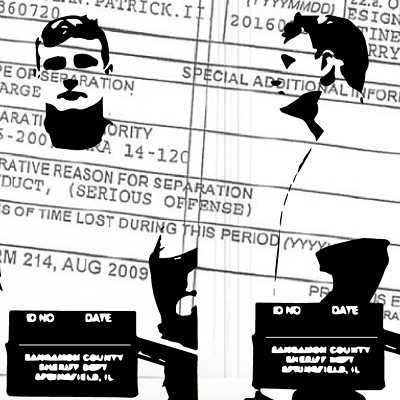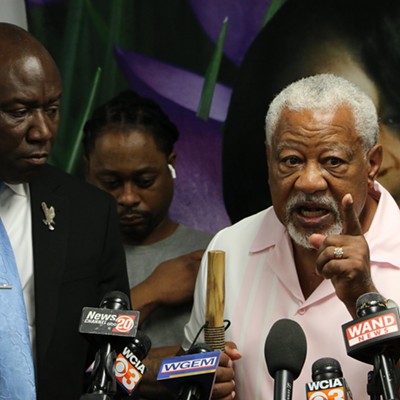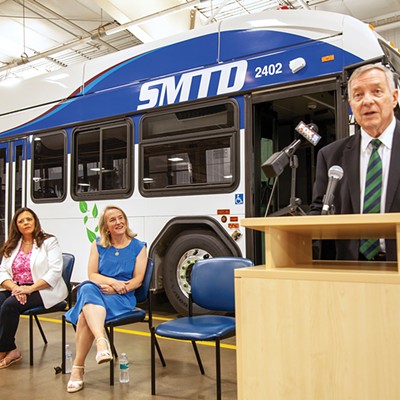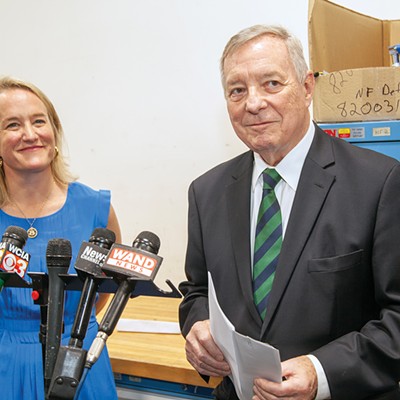In the wake of United Airlines’ decision to no longer serve Springfield, travelers flying to Chicago will likely pay more for their airfare, an economist specializing in air travel told Illinois Times.
When United leaves June 1, the only major commercial carrier serving Springfield will be American Airlines.
“American will be the monopolist at your airport. This will allow it to raise prices. Sadly, there are no other options for people in your community to fly with someone else,” said Kerry Tan, an associate professor of economics at Loyola University in Maryland.
The United announcement came two months after American Airlines announced that it would discontinue its daily flight between Springfield and Dallas-Fort Worth, also on June 1.
American Airlines will begin offering two flights daily to O’Hare International Airport on that date.
United’s decision will leave Springfield served by only three airline routes: American’s flight to and from O’Hare and the discount carrier Allegiant Airlines’ less frequent flights to and from Punta Gorda/Ft. Myers, Florida and Mesa, Arizona.
“We're very disappointed to learn that United, our hometown airline, has decided to discontinue service to the Illinois state capital,” said Mark Hanna, executive director of Abraham Lincoln Capital Airport. “We understand the decision was really based on a lack of current demand, overall market conditions and a severe nationwide pilot shortage.”
United has one daily flight between Springfield and O’Hare.
United Airlines is headquartered in Chicago and its main hub is at O’Hare. The airline’s Springfield connection proved convenient for travelers wishing to take advantage of United’s many destinations while remaining on the same airline.
Professor Tan said communities the size of Springfield are vulnerable to the loss of air service. In fact, on the same day United announced its exit from Springfield, it also said it was leaving the Erie, Pennsylvania, market.
“Air service is very emotional for us as a community,” Hanna said. “But when it comes to the providers, they need to meet their internal (financial) returns and their targets. And basically, it's a very mobile resource. They can fly that aircraft to another market and make more money. So, we don't just compete against Champaign, Bloomington, Peoria or St. Louis. We're competing against Portland, Oregon; Santa Fe, New Mexico; Idaho Falls, Idaho; Amarillo, Texas; Sacramento, California. We compete with every community – east, west, north, south – for aircraft time.”
The heightened competition among communities stems in part from a shortage of pilots, he said.
Tan agreed, noting an underlying reason for the shortage is a federal regulation increasing the training requirements for commercial pilots.
“Before 2013, a pilot only needed 250 hours of flight time to get employed by a regional airline. And post-2013, that requirement went from 250 hours to 1,500 hours. That has deterred a lot of potential pilots from making a career in aviation,” he said.
“It is just so expensive nowadays to get to the 1,500-hour mark that it is almost akin to being in the medical field where you're getting underpaid as a medical resident for a long time. And it's not until you pass your board exams and can be a practicing physician that you really start making big money,” Tan said. “And similarly, for the pilots, it takes several years until they can become a captain. And it's not until you become a captain where the salary becomes quite lucrative.”
Scott Dahl, director of the Springfield Convention & Visitors Bureau, said United’s departure from this market will have little effect on the capital city’s convention trade.
“My best guess is that more than 90% of the people who come to Springfield for conventions drive here,” he said. “It may affect conventions to the extent that speakers often fly in.”
But Dahl added that if Springfield wants to increase its marketability to conventions and move to a higher tier as a convention destination, it is critical that it improves its air service options.
Hanna, with the airport authority, said he is hopeful United will someday return.
“The possibility of (United) coming back, I think, is very good in the future,” he said. “But this situation is going to get worse. And there are many people in airports, airlines and aviation across the country who feel the same. This pilot situation is real. It's very severe, and it's not going to get better any time soon.”
Most of the people working for United in Springfield held part-time positions, he said, so the number of jobs lost will be minimal.
Mayor Jim Langfelder said, “I have reached out to Senator (Richard) Durbin and he is setting up a meeting with representatives from United because they are headquartered in Chicago.”
Langfelder added he is concerned what impact United’s departure will have on the city’s business community.
“Sen. Durbin really has a lot of influence and hopefully he'll open up that door of discussion. And hopefully working with the (Springfield Sangamon) Growth Alliance, Capitol Airport Authority and ourselves, we'll be able to do something to get that additional flight back because it is more convenient, especially for the business traveler.”
Mike Murphy, who heads the Greater Springfield Chamber of Commerce, said he is concerned.
“With United and American, they gave us a lot more options,” he said. “Now with United dropping out, it feels like we took one step forward and two steps back. It's disappointing.”
Scott Reeder, a staff writer for Illinois Times, can be reached at [email protected]























